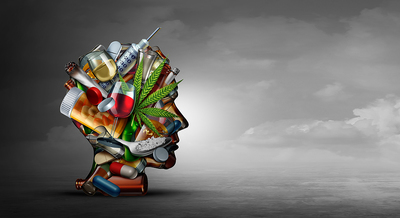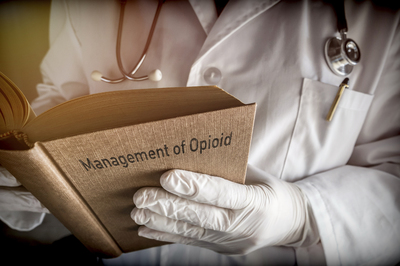
Substance misuse is complex; so is its treatment.
Prescription opioid and heroin misuse affects millions of Americans every year. Unfortunately, the prevalence of opioid use and misuse is on the rise. You may have heard the words “dependence” and “addiction” to describe this growing public health problem. While these terms are related, they are not interchangeable. Here’s a closer look at the difference between the two, what they mean, and the critical role treatment plays in supporting recovery.
What is Opioid Dependence?
Opioids work by attaching themselves to opioid receptors, which are used by the brain to send pain signals. This binding process interferes with pain signals, preventing them from being sent. While opioids can be an effective pain management treatment under the guidance of a trained physician, they can also be very dangerous. As your body builds up a tolerance to them, you may need more opioids to reach the same level of pain relief. This can happen even if you’re following your doctor’s instructions.
Over time, this can lead to drug dependence, which is defined by the World Health Organization (WHO) as “a cluster of physiological, behavioral, and cognitive phenomena in which the use of a substance or a class of substances takes on a much higher priority for a given individual than other behaviors that once had greater value.”
Opioid dependence results from the changes to the brain that result from taking opioids. A primary characteristic of opioid dependence is the very strong, often overpowering compulsion to take the substance. People who are dependent on opioids will also experience withdrawal symptoms, such as anxiety, nausea, diarrhea, and sweating. In order to mitigate these symptoms—resulting either from abstinence or increased tolerance—they need more opioids to feel normal.
What is Opioid Addiction?
While opioid dependence is a physical phenomenon caused by changes to the brain, opioid addiction is a condition resulting from this physical dependence and the physical and emotional responses it causes.
The American Society of Addiction Medicine (ASAM) defines addiction as “a treatable, chronic medical disease involving complex interactions among brain circuits, genetics, the environment, and an individual’s life experiences.”
As people with opioid dependence endeavor to manage their withdrawal symptoms, their behaviors may change. “People with addiction use substances or engage in behaviors that become compulsive and often continue despite harmful consequences,” continues ASAM. Such behaviors may include ignoring personal and professional responsibilities, difficulty managing emotions and behaviors, and obsessing over how and when to obtain opioids. These behaviors often become progressively worse until an individual bottoms out.

Detoxing under the care of a doctor and other qualified healthcare professionals can give opioid users the best chance of a successful recovery.
The Treatment Imperative
Regardless of whether an individual is dealing with opioid dependence or opioid addiction, treatment is an essential step to regaining control over life. The first step in both cases is detox, which refers to the process by which opioids are safely and gradually removed from the body. While this process can be done “cold turkey,” doing so can be both painful and dangerous. As such, it’s best done under the supervision of a doctor. Additionally, specialists can use a combination of medications to accelerate and ease the process.
It’s also important to note that while opioid dependence and addiction are caused by physical changes within the brain, there are often underlying causes as well—which may be physical, mental, or emotional in nature. Seeking treatment at a reputable drug rehabilitation center will address all of these factors in order to best support lasting recovery.
For more than 50 years, leading St. Louis area rehab center Harris House has been providing targeted treatment to people with opioid dependence and opioid addiction. If you or someone you love is struggling with substance misuse and its repercussions, contact us today.







